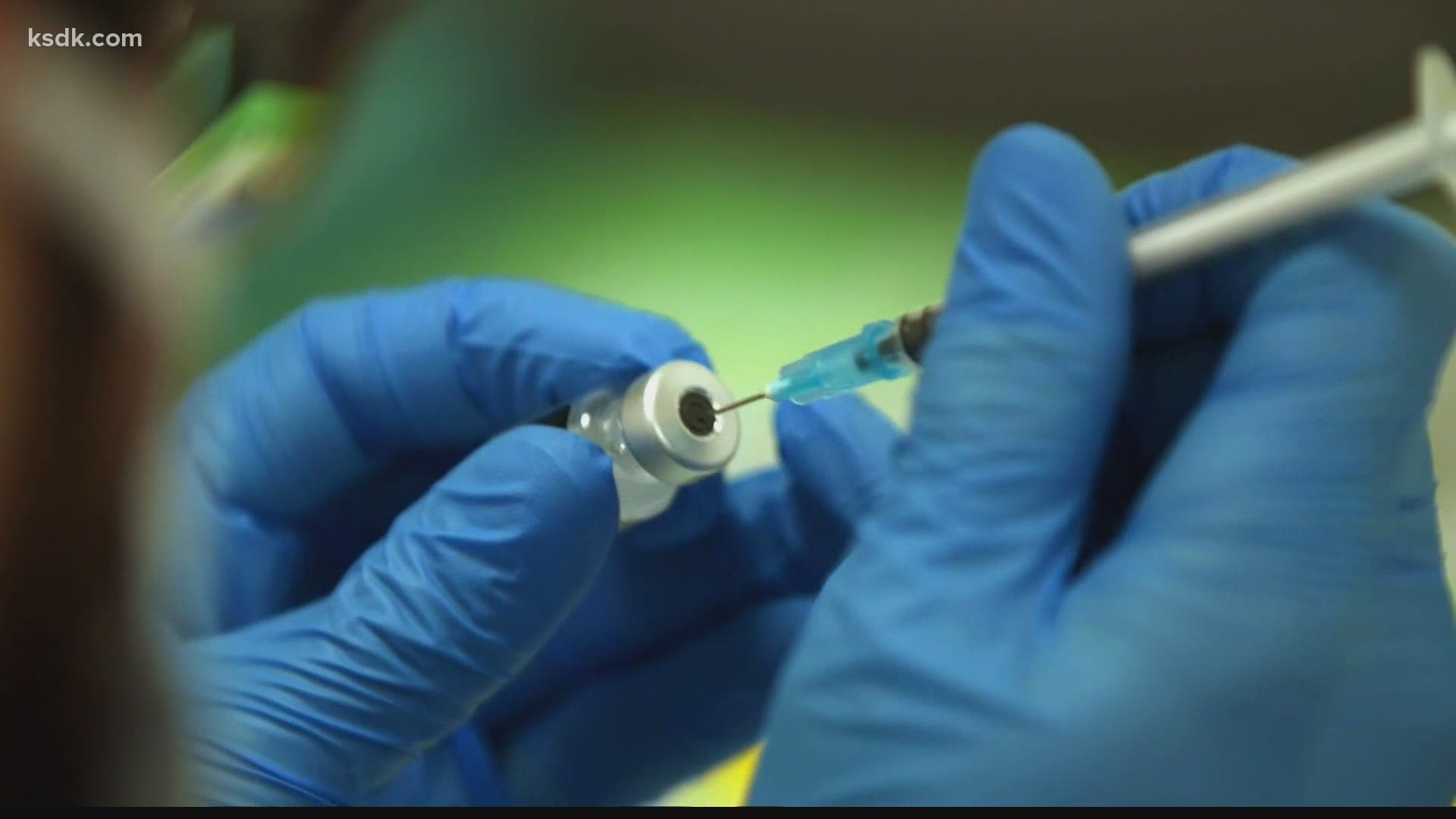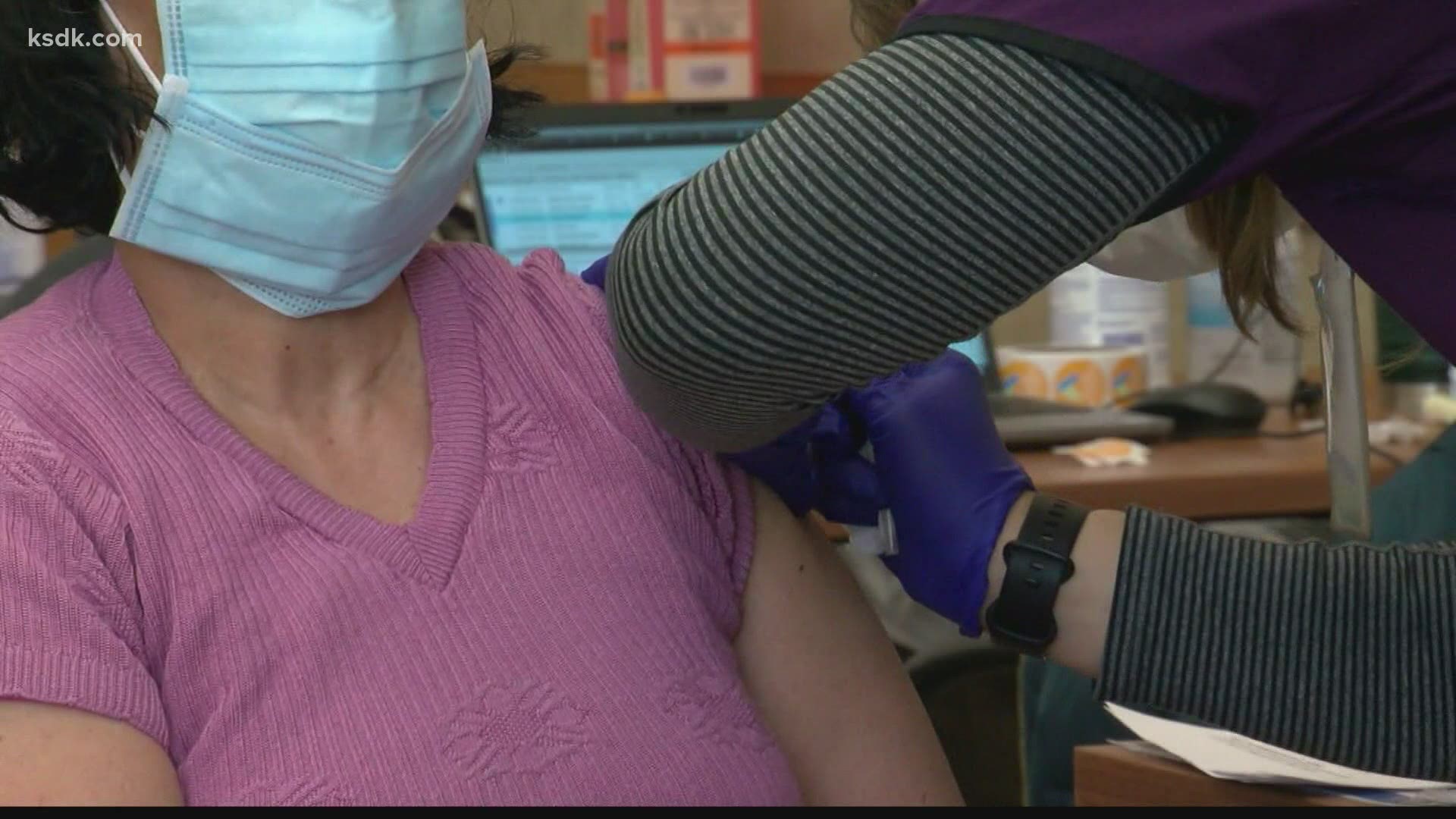ST. LOUIS — They were on the frontlines a year ago when COVID-19 first hit, and now health care workers are among the first to receive the vaccine.
Being first is usually a good thing, but as you're about to find out, some health care workers are perfectly fine with being last in line for the shot.
Elizabeth Jaeckle is an acute inpatient physical therapist at a hospital in Washington, Missouri.
“Anytime that you kind of have that special access to something you get that excitement and then I kind of started thinking about it, and I have multiple reasons why I chose to decline,” Jaeckle said.
She's treated a number of COVID-19 patients and has seen the impact of the virus first hand. Still, when she got the email to sign up for her vaccine, she wasn't sure.
“I don't like to be the first to do anything. Any new diet fads, any new exercise things. I like to kind of sit back and wait, let everybody else kind of go out there and experience it and see the data,” she explained.
Jaeckle isn't alone.
5 On Your Side reached out to our area hospitals to find out how many health care workers have received the vaccine. The health systems in the St. Louis Metropolitan Pandemic Task Force include St. Luke’s Hospital, BJC Healthcare, Mercy and SSM Health.
According to their data, 64,709 task force hospital health care workers have received their first dose. That number is expected to increase as confidence grows. It comes out to about 64% of employees who have gotten the vaccine, which leaves roughly 40% unvaccinated.
Dr. Shephali Wulff is the assistant medical director for infectious disease at SSM Health.
“No, I'm not terribly surprised. I think we've been fighting this uphill battle with COVID disinformation for the past year and that, of course, has spilled over into the vaccine as well,” explained Dr. Wulff.
Dr. Wulff has had both doses of the vaccine and witnessed the hesitation among her colleagues.
“Now that we're six weeks into our vaccine cycle, people are starting to say, ‘OK people seem to have done OK,’ we're not seeing a lot of adverse events. People aren't getting sick for two or three days after the vaccine and so people are saying, ‘OK, I think I'm ready to get mine,’” she said.
Dr. Wulff said while the vaccine is new, the technology isn't. MRNA has been studied for 10 years.
“The data is compelling. The CDC published that there have been 24 million doses of both Pfizer and the Moderna vaccine given in the last six weeks or so. They have only had 50 severe reactions. These were anaphylactic and those reactions were expected. Fifty out of 24 million, I think is remarkable,” said Dr. Wulff.
Still, Jaeckle said as a healthy young adult, she'd prefer to wait and give others who are high risk her spot in line.
“There are people that are you know, stuck at home, terrified of going out because they are immunocompromised or they do have comorbidities that prevent them from feeling comfortable enough to experience their life. So, let them go before me, that's kind of what I think,” said Jaeckle.
It's important to note that because the COVID-19 vaccine is not yet FDA approved, hospitals are not making it a requirement like the flu shot.
Pfizer and Moderna have been approved for Emergency Use Authorization. The full FDA approval likely won’t come for at least another year.


